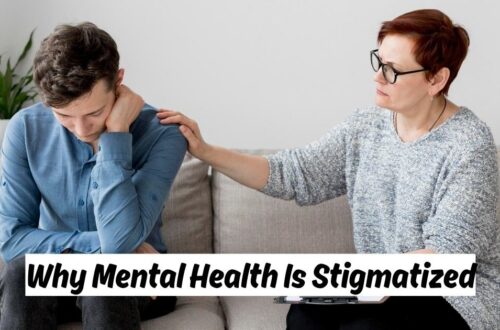Paranoia oblivion is a psychological state where persistent suspicion and mistrust blend with emotional detachment and a sense of emptiness. Individuals experiencing paranoia oblivion may feel that others are judging, watching, or plotting against them, while at the same time feeling disconnected from their own emotions and environment.
Table of Contents
This dual experience creates a cycle of inner conflict hyperawareness on one hand and emotional numbness on the other that deeply affects mental health, relationships, and daily functioning. Understanding the complexities of paranoia oblivion requires looking into its causes, symptoms, and coping strategies in detail.
Related article: Emotional Habits: Shaping the Way We Think, Feel, and Live
Understanding Paranoia Oblivion
Paranoia on its own is characterized by heightened suspicion, often without clear evidence. Oblivion, in this psychological context, refers not to forgetfulness but to emotional detachment or numbness. When these two conditions converge, they create paranoia oblivion a state where a person is both deeply mistrustful and emotionally withdrawn.
This combination can feel contradictory. On one side, paranoia fuels hypervigilance, making a person constantly alert to potential threats. On the other, oblivion creates distance, leaving them emotionally disconnected from relationships and even from themselves. Together, these states reinforce one another, leaving individuals feeling trapped in their own minds.
Key Features of Paranoia Oblivion
- Persistent suspicion or belief that others have negative intentions
- A sense of unreality or detachment from surroundings
- Difficulty expressing or even recognizing emotions
- Withdrawal from social connections due to mistrust and numbness
Causes of Paranoia Oblivion
Psychological Origins
Trauma plays a significant role in the development of paranoia oblivion. Survivors of abuse, neglect, or betrayal often carry heightened sensitivity to perceived threats, while emotional detachment becomes a coping mechanism. Anxiety disorders may also contribute, where constant fear eventually leads to mental exhaustion and numbness. Depression is another factor, as hopelessness fosters both suspicion and emotional withdrawal.
Biological and Neurological Influences
Brain chemistry has a powerful effect on mental health. Imbalances in neurotransmitters like dopamine and serotonin can lead to paranoid thoughts and dissociative symptoms. Chronic sleep deprivation is another major contributor, since poor rest heightens anxiety while causing disconnection from reality. Substance use, particularly stimulants or hallucinogens, may worsen or trigger episodes of paranoia oblivion in vulnerable individuals.
Environmental Stressors
High-pressure environments, toxic relationships, and social isolation can reinforce paranoia while pushing individuals further into emotional oblivion. When external stress combines with inner struggles, the intensity of paranoia oblivion increases significantly.
Symptoms of Paranoia Oblivion
The symptoms of paranoia oblivion can vary widely, but they often fall into emotional, cognitive, and physical categories.
Emotional Symptoms
- A constant sense of mistrust, even toward loved ones
- Emotional flatness or inability to feel joy
- Fear of betrayal and vulnerability
Cognitive Symptoms
- Difficulty concentrating due to intrusive suspicious thoughts
- Dissociation, where surroundings feel unreal or dreamlike
- Replaying past negative experiences, reinforcing mistrust
Physical Symptoms
- Sleep disturbances, including insomnia or restless nights
- Increased heart rate, sweating, or trembling during paranoia spikes
- Chronic fatigue from emotional and mental strain

Impact of Paranoia Oblivion
On Mental Health
Living with paranoia oblivion can lead to worsening anxiety, deepened depression, or even post-traumatic stress disorder. The cycle of fear and numbness often reinforces itself, making it difficult to break free without support.
On Daily Life
Daily functioning is significantly disrupted. Work productivity decreases due to concentration issues, and social interactions feel exhausting. The mistrust tied to paranoia oblivion may cause individuals to withdraw from group activities, leaving them feeling isolated.
On Relationships
Suspicion erodes trust, while emotional numbness blocks intimacy. Over time, loved ones may feel shut out, straining bonds and further intensifying the loneliness of those experiencing paranoia oblivion.
Related article: Emotional Stress: Understanding, Managing, and Overcoming Daily Struggles
Coping with Paranoia Oblivion
Professional Support
Therapy is often the most effective way to manage paranoia oblivion. Cognitive Behavioral Therapy (CBT) helps individuals challenge paranoid thoughts, while trauma-informed therapy addresses the root causes of detachment. In some cases, Eye Movement Desensitization and Reprocessing (EMDR) can help reduce the impact of trauma-related symptoms. Medication such as antidepressants or anti-anxiety drugs may also help stabilize mood and reduce paranoia.
Self-Help Approaches
Mindfulness techniques, including meditation and grounding exercises, allow individuals to stay present and calm overwhelming thoughts. Maintaining healthy sleep routines, eating balanced meals, and engaging in regular physical activity support mental stability. Journaling can also help identify thought patterns tied to paranoia oblivion, allowing individuals to better manage them.
Building Social Support
A strong support system is crucial. Trusted friends, family members, or support groups provide reassurance and connection, helping counter both mistrust and detachment. Talking openly about experiences of paranoia oblivion reduces isolation and helps break the stigma.
Stigma and Paranoia Oblivion
Unfortunately, mental health stigma prevents many from seeking help. Paranoia is often dismissed as irrational overthinking, while emotional numbness is misunderstood as indifference. These misconceptions make those experiencing paranoia oblivion feel even more isolated. Education and open dialogue are essential to reduce stigma and encourage compassion.
Path Toward Healing
Healing from paranoia oblivion takes time and requires consistent effort. Professional treatment, self-care practices, and supportive relationships together create a pathway toward recovery. Progress may be gradual, but even small steps such as sharing feelings, engaging in mindfulness, or challenging suspicious thoughts move individuals closer to healing. Over time, the balance between fear and numbness can be replaced with trust and emotional reconnection.
Conclusion
Paranoia oblivion is a deeply challenging condition where suspicion and emotional detachment coexist, impacting mental health, relationships, and daily life. Rooted in trauma, anxiety, depression, or biological imbalances, it often leaves individuals feeling trapped between hypervigilance and emptiness. Recognizing symptoms, seeking professional help, practicing self-care, and building supportive networks are key steps toward recovery. By breaking stigma and encouraging open conversations, society can ensure that people facing paranoia oblivion do not suffer in silence. With the right guidance and compassion, healing and reconnection are possible.





